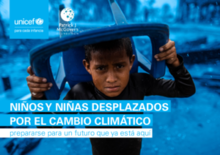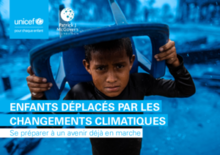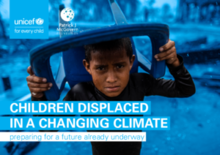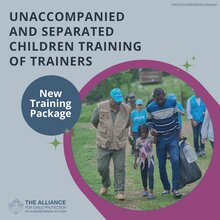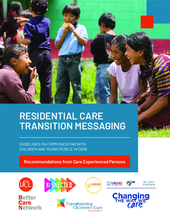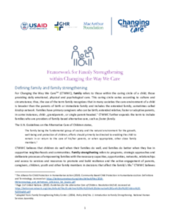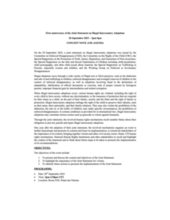Displaying 441 - 450 of 4424
El informe analiza los peligros meteorológicos más comunes que provocan el mayor número de desplazamientos: inundaciones, tormentas, sequías e incendios forestales.
Ainsi, le présent rapport analyse les aléas météorologiques les plus courants à l’origine de la majeure partie des déplacements, à savoir les inondations, les tempêtes, les sécheresses et les feux incontrôlés.
‘Children displaced in a changing climate: Preparing for a future already underway’ analyses the most common weather-related hazards that lead to the largest number of displacements: floods, storms, droughts and wildfires.
The Unaccompanied and Separated Children Training of Trainers (UASC TOT) course is designed to prepare participants to facilitate training on unaccompanied and separated children (UASC). This training reinforces participants’ understanding of the specific needs of UASC, highlight good practice in working with unaccompanied and separated children under a protection framework, and provide participants the opportunity to apply learning so they can roll out training on UASC within their own organisation and to other stakeholders.
The purpose of these guidelines is to support practitioners to develop messaging for children and young people that clearly communicates the intention to transition and the implications for children and young people in care. The guidelines seek to address challenges so that children and young people can fully understand the implications of transition and be granted opportunities to genuinely and appropriately participate in making decisions about their lives.
This international survey is open to anyone interested in identifying the benefits and challenges of co-design, co-production and care experienced peer support in research, policy and social services practice and/or the establishment of and supports for lived experience workers.
This data collection exercise was commissioned to assess the different types of Kafaalah care arrangements practiced by families and communities in Kilifi, Kenya. It affirms that Kafaalah is a widely known and practiced form of care among the Muslim community in Kilifi County.
This guide framework describes how CTWWC employs its family strengthening approach.
Join this webinar to learn about the findings from the Contextual Safeguarding Across Borders (CSAB) project, a two-year study ran by the Contextual Safeguarding research programme at Durham University and funded by Porticus Foundation. This research sought to understand the applicability and feasibility of Contextual Safeguarding in international contexts.
This event taking place in Geneva at the Palais des Nations on 20 September between 3.00-4.50 pm CET is to celebrate the one year anniversary of the joint statement on illegal intercountry adoption issued by the Committee on Enforced Disappearances and the Committee on the Rights of the Child. The concept note and agenda for this event is attached.

